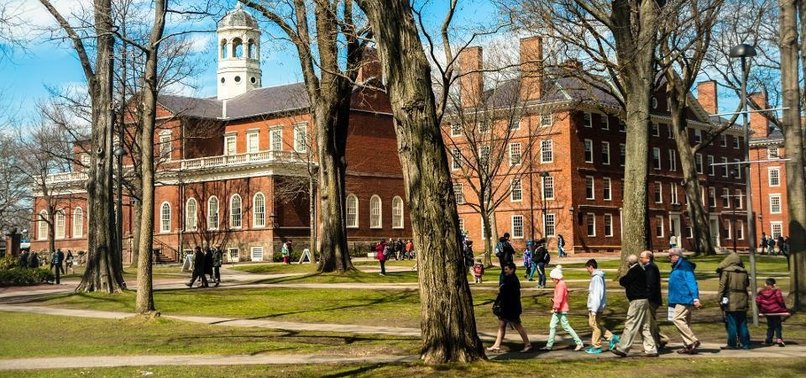The United States said on Monday it would not allow foreign students to remain in the country if all of their classes are moved online in the fall because of the coronavirus crisis.
“Nonimmigrant F-1 and M-1 students attending schools operating entirely online may not take a full online course load and remain in the United States,” US Immigration and Custom Enforcement said in a statement.
“Active students currently in the United States enrolled in such programmes must depart the country or take other measures, such as transferring to a school with in-person instruction to remain in lawful status,” ICE said.
“If not, they may face immigration consequences including, but not limited to, the initiation of removal proceedings.” ICE said the State Department “will not issue visas to students enrolled in schools and/or programmes that are fully online for the fall semester nor will US Customs and Border Protection permit these students to enter the United States.”
F-1 students pursue academic coursework and M-1 students pursue “vocational coursework,” according to ICE.
Universities with a hybrid system of in-person and online classes will have to show that foreign students are taking as many in-person classes as possible, to maintain their status.
Read more – University student expelled for protesting against online classes
The decision was met with widespread criticism.
“The cruelty of this White House knows no bounds,” tweeted Senator Bernie Sanders. “Foreign students are being threatened with a choice: risk your life going to class-in person or get deported.”
The cruelty of this White House knows no bounds. Foreign students are being threatened with a choice: risk your life going to class in-person or get deported.
— Bernie Sanders (@SenSanders) July 6, 2020
We must stand up to Trump's bigotry. We must keep all our students safe. https://t.co/Q2MvmgJPqV
To be clear all students were online-only since March 2020. So this means every single international student is now unsure about their future in the country.
— Sabahat Zakariya (@sabizak) July 7, 2020
The Trump admin has now decided to *deport* (yes, deport) thousands of foreign students—the most skilled and talented young men and women of the world—already in the US holders of a valid visa.
— Dany Bahar (@dany_bahar) July 7, 2020
If that’s not America attempting suicide, please explain what is it.
Most US colleges and universities have not yet announced their plans for the fall semester.
A number of schools are looking at a hybrid model of in-person and online instruction but some, including Harvard University, have said all classes will be conducted online. Harvard said 40 per cent of undergraduates would be allowed to return to campus — but their instruction would be conducted remotely. On the local front, the Lahore University of Management Sciences (LUMS) has also announced that it would be conducting its fall semester online.
There were more than one million international students in the US for the 2018-19 academic year, according to the Institute of International Education (IIE).
The largest number of international students came from China, followed by India, South Korea, Saudi Arabia and Canada.
President Donald Trump, who is campaigning for reelection in November, has taken a bullish approach to reopening the country even as virus infections continue to spike in parts of the country, particularly the south and west.
SCHOOLS MUST OPEN IN THE FALL!!!
— Donald J. Trump (@realDonaldTrump) July 6, 2020
With more than 130,000 deaths linked to the novel coronavirus, the US is the hardest-hit country in the global pandemic.
While cracking down on immigration is one of his key issues, Trump has taken a particularly hard stance on foreigners since the health crisis began. In June, he froze until 2021 the issuing of green cards — which offer permanent US resident status — and some work visas, particularly those used in the technology sector, with the stated goal of reserving jobs for Americans.







